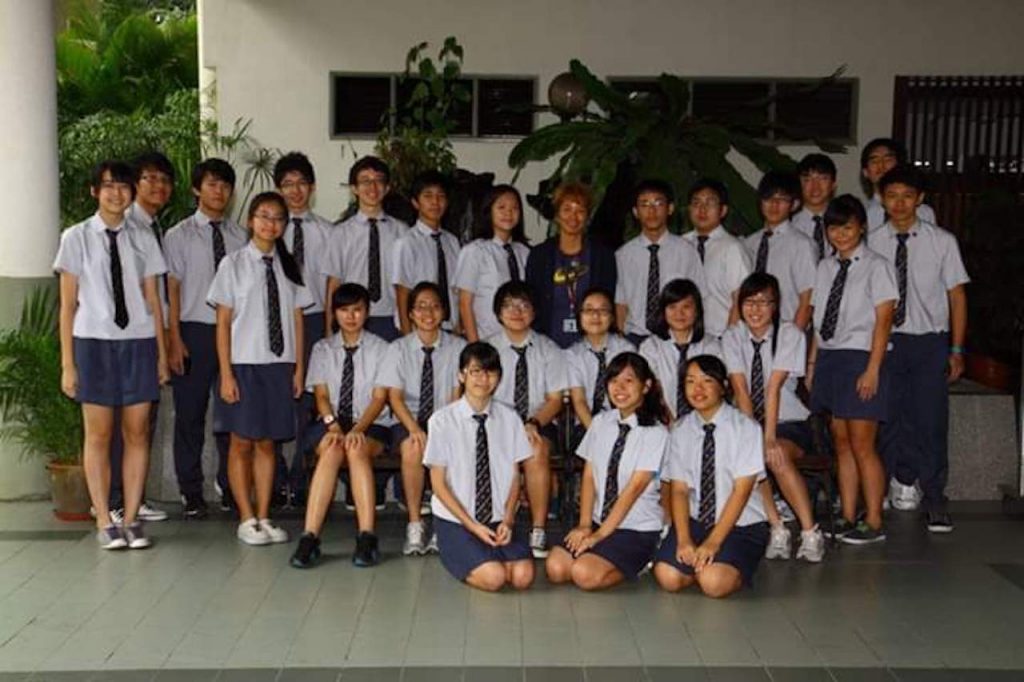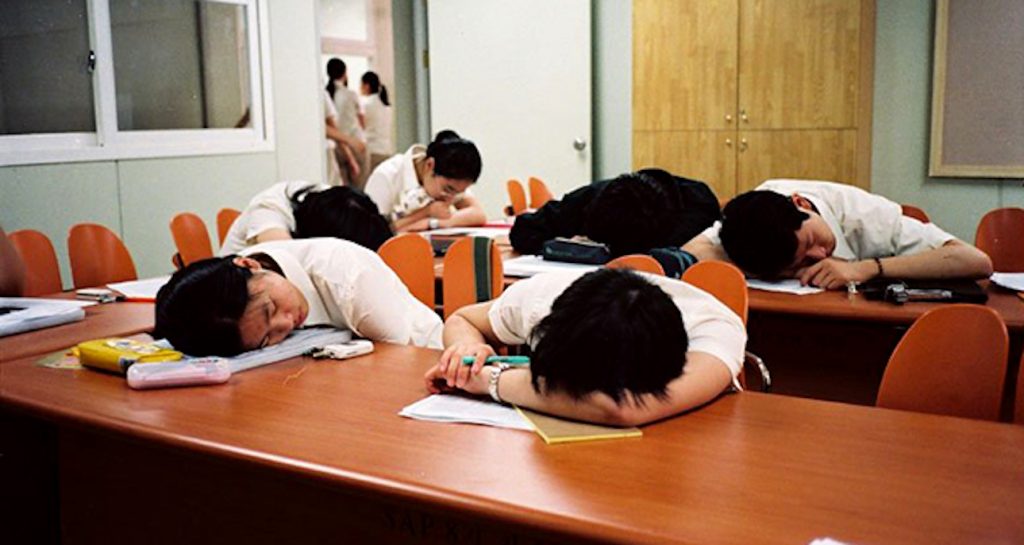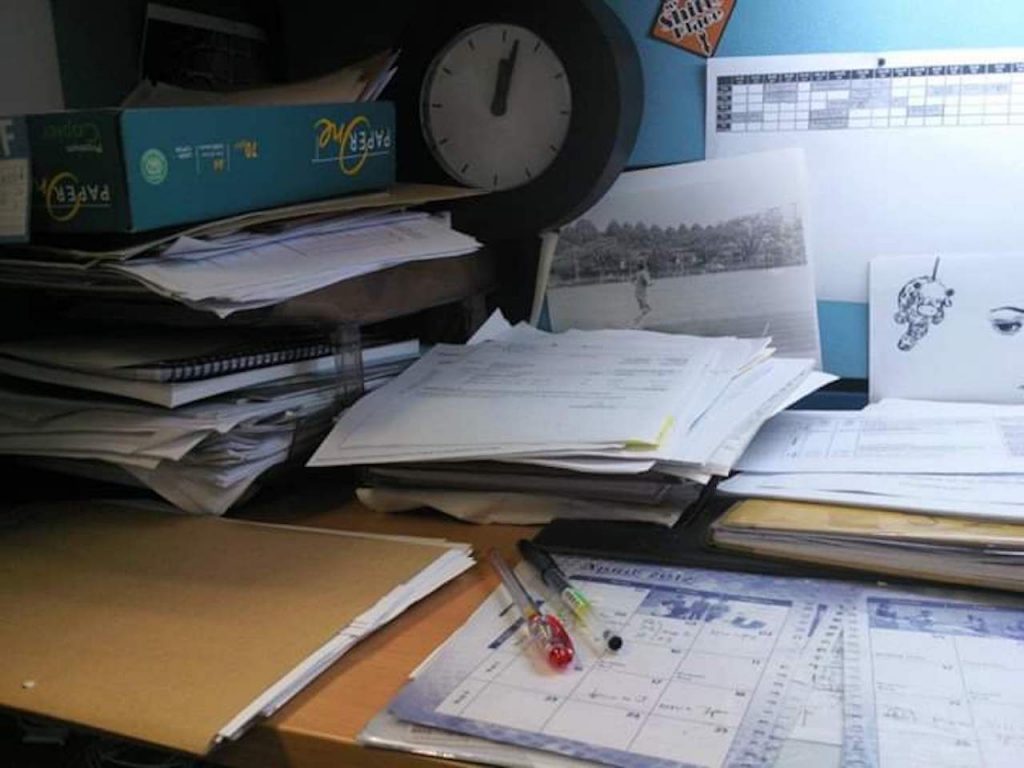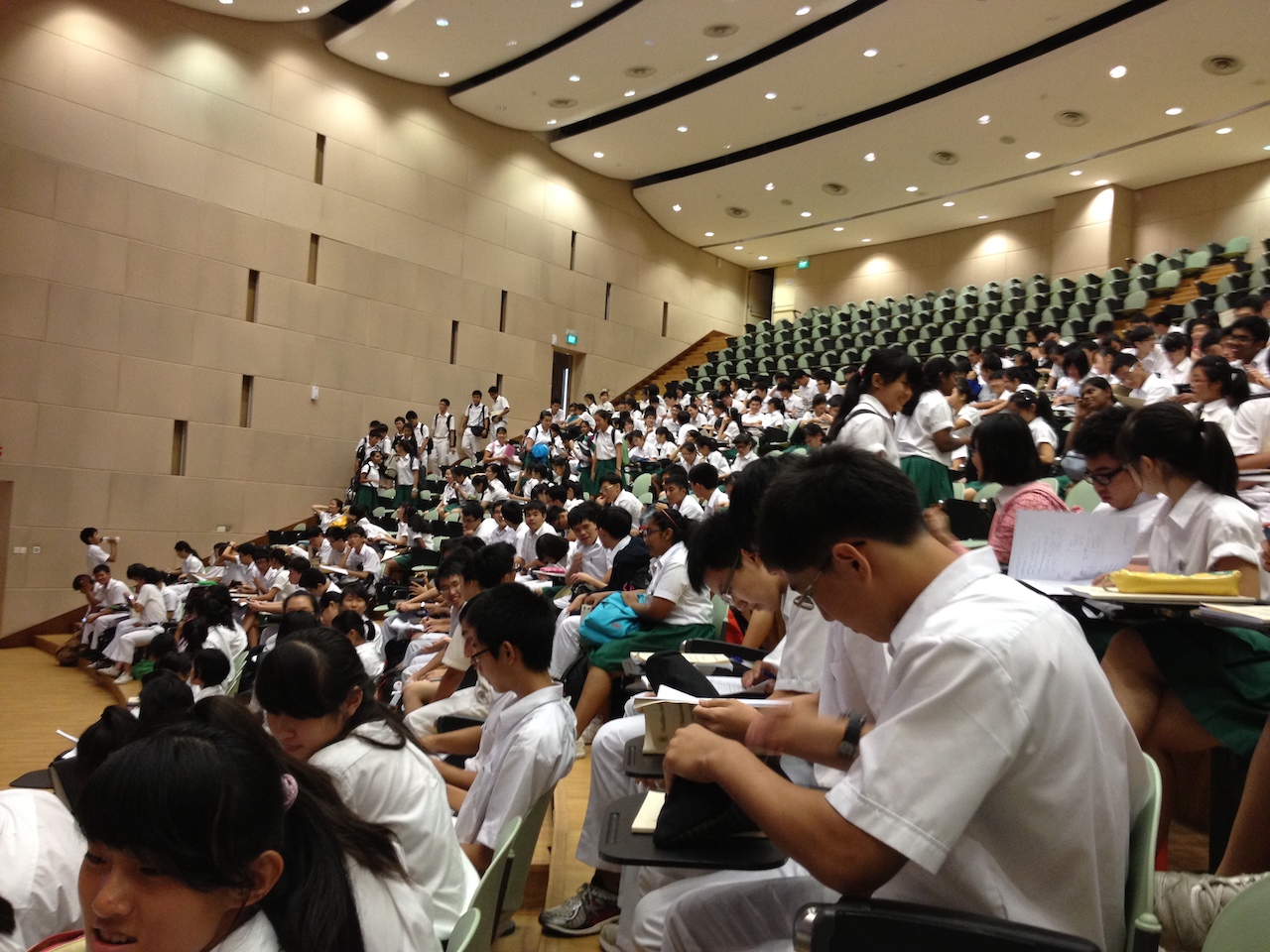Remember those two years of your natural-born life? The intensity and breathless chaos of orientation groups, lectures and tutorials, fleeting friendships, and long days turning into nights?
And that’s just about the teacher’s life. Now imagine how it feels to repeat this cycle every 2 years.
Student Lists.
If you think the unfamiliar faces of your group mates were a confusing mass/mess, imagine having to memorise the names of 3 to 4 classes of 25, only to have to do this all over again after you have self-congratulatingly mastered this in a year. While secondary school teachers can place you in fixed seats and homerooms, JC teachers rely on photo lists, some with your outdated pictures from your P6 Transitlink cards. I only started to match faces to names of my 70 to 100 odd kids after marking their assignments and matching names to faces, especially the recalcitrant students whose penmanship resembled the handwriting of serial-killers who weren’t breastfed as children.
Granted, it is easier to memorise the ones in your form class whom you see every morning at assembly and 5 tutorials a week. But it’s more challenging for those you see for half of that. Worse when they text you from mysterious phone numbers with accompanying user pics of anime characters without signing off with a name. Then you waste the embarrassing reply text of, ‘You are?’ which is only made more awkward when you later have to say that face to face to a student who has been like Ikea furniture in your class all year.

This was probably your first foray into the lecture system, and after too many confusing sessions, you just went to get your handouts and spent the hours napping, updating IG, or each other. From our vantage point, we see everything: sometimes unwanted visuals of the colour of your delicates due to poor sitting posture.
Personally, I’ve never been a fan of the lecture format, both as a student and a teacher because unless you have done pre-reading of the topic (rare), everything is just sound and fury, signifying nothing. And without a textbook, with only the notes you try to follow on your handouts, all while annotating, listening, and reading, and sometimes being put in a spot to respond to questions—this, in totality, is a sensory multitasking skill which takes years to master. Often, if we don’t engage you for the first 10 minutes of the lecture, we would have lost you in that certain death by Powerpoint, indicated by zombie heads nodding or collective ‘tsk’ noises when we change slides before you can copy every word. Or, nowadays, photo captures of the projected slides on your phones.

We used to wonder why students were constantly sleep-deprived, dozing off in our morning classes. Short of offering them a pillow in sympathy for their night jobs as traders/club DJs/strippers, we realised that the root cause binds us in curiously similar experiences. While we both start our days at 7:30 AM with some classes ending at 5 PM, there are the wretched CCAs that can stretch to 9 PM until the jagah chases you out, and then you get home to try and finish tutorial assignments way into the night.
In a parallel universe, we sit in school until 9 PM, hoping there aren’t incident reports to handle during your CCAs while completing our admin sai-kang and marking which are gifts that never stop giving. Some may think, how risky could a CCA like a symphonic band or choir be? Well, I once had a boy break his arm slipping down stairs while goofing around with his friends during sectionals, and needed an ambulance with an accompanying adult teacher-in-charge.
So parents reading this, yes, your precious sprogs will still be in potential hazards at 17 years old.

Having been a JC teacher for 25 years, I have seen the most bizarre incidents of adolescence, ranging from relationship drama to abortion MCs to attempted or successful suicides. As a mother of two adults, I’ve had the benefit of experience to grapple with teen angst and volatility, but my younger colleagues can sometimes be caught in difficult situations—whether to be involved or objective—sometimes at the peril of their own jobs. What if something is misread as a dangerous liaison? Which is why, in a still sexist culture, I advise my male and especially younger co-workers to never talk with a student alone in a room, regardless of gender. One lost his job for this reason alone, when signals got misread or missent.
There is something volatile about these pre-adult years that can manifest in a perfect storm of identity and existential crises, mixed with the harried pace of getting through the worst exam of your life which can make or break you, all while running on empty in terms of physical and mental energy. Unlike the 6-year IP system which stews teenagers in this academic process, the JC kid is made to swiftly sort through all the changes from hormones to university and the intense syllabi within and beyond the classroom. Ironically, they still have to ask for permission to go to the restroom during lessons, yet are expected to make hefty decisions about their future careers.
My first-born took 5 years to get to uni after going through both JC and poly, and she can vouch that stress in poly comes from project deadlines and maintaining a good GPA, but JC is all that plus CCA and late lesson extras while working towards a single foreign exam that is a lottery of possible failures.
While witnessing them experience this crash course—for want of better phrasing—we can offer nothing more than the weird role of pseudo parent/mentor/aunt/uncle. Because the rapport is as transient as their lives in college, we have to negotiate with distance and depth.
How much professional distance to keep from individuals whom we won’t see again after just getting to know them? We can’t handhold them like they are raw teenagers because they seem more independent in thinking and behaviour, yet there is a fragility in their newly-formed identities that requires affirmation and guidance. And just when you start to connect (and memorise their names), it is the October farewell assembly again.
Sunrise, sunset.
Also a teacher? Tell us about your best/worst students here: community@ricemedia.co






